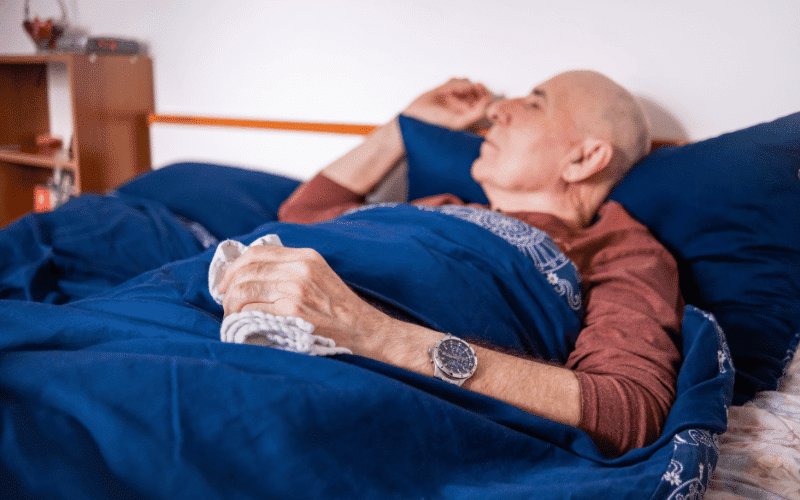Tip 9: Prioritize Good Sleep Hygiene

Sleep disturbances are a common issue for people with dementia, and these can significantly impact their mood and cognitive function. Prioritizing good sleep hygiene can help regulate their sleep patterns and enhance their overall well-being.
Maintain a consistent sleep schedule. Having a set bedtime and wake-up time can regulate their internal body clock and promote better sleep quality. Avoid naps late in the afternoon or evening, as these can disrupt their nighttime sleep.
Create a conducive sleep environment. Keep their bedroom quiet, dark, and at a comfortable temperature. Consider using blackout curtains, earplugs, or a white noise machine if needed. Ensure their mattress and pillows are comfortable and supportive.
Encourage relaxing activities before bedtime. This can include listening to soft music, reading, or taking a warm bath. Avoid stimulating activities or discussions that could cause agitation or anxiety near bedtime.
Limit their intake of caffeine and alcohol, especially in the evening. These substances can disrupt sleep. Also, encourage them to use the toilet before bed to minimize nighttime wake-ups. (9)